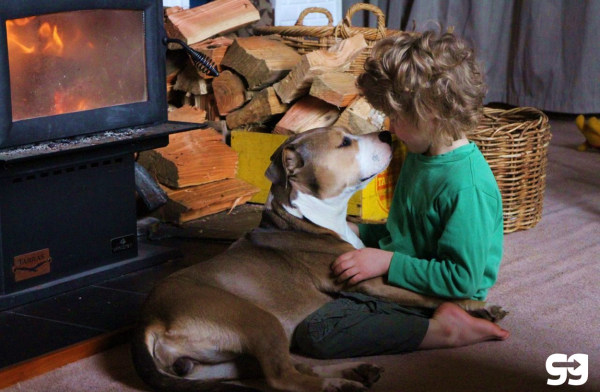

Although most travelers stay at hotels when they travel, there are many other options, from B&Bs to hostels.
One of the most unique ways to travel is a home exchange, also known as a house swap. What is a home exchange and how do you do it? We asked the experts at GuestToGuest.
Q: What is home exchange and how does it work?
A: Traditionally, the practice of home exchange involves two families swapping their homes during a holiday, as a free alternative to renting or staying at a hotel.
In the past, you would flip through catalog listings to find a suitable home, but today multiple websites provide large online databases of homes, with various search filters to find the perfect exchange.
Users can browse destinations and then send out exchange offers and get to know each other by messaging. Once they agree on the terms of the exchange, they will have the opportunity to select optional services through the site, such as travel insurance or a security deposit.
Yet another development in home exchange has been the invention of a points system to permit non-reciprocal exchanges.
That is to say, people can accumulate points by hosting without traveling themselves, and then use these points to travel as a guest elsewhere.

Q: What are the benefits of home exchange?
A: The practice of home exchange can be appealing for a number of reasons. First of all, it allows travelers to save an average of 30 percent on their budget, often providing the opportunity to travel farther or longer than with a rental or a hotel.
It is also a more authentic way to get to know your destination. You have the opportunity to live like a local, get to know the neighborhood with tips from your host, and enjoy all the comforts of home.
Imagine visiting the local market and picking up fresh produce to make dinner in your own kitchen! At the same time, it can be comforting to know you’ll have someone to look after your own home while you’re away.
Instead of paying for a house sitter, your guest can take care of your pets and plants for free. Another advantage of home exchange is being able to find hosts/guests with similar interests.
For example, if you’re a fan of mountain biking or kite-surfing, you can find an exchange partner who does too, and make use of each other’s equipment rather than bringing your own. The same goes for children’s toys.
Q: Where can I go with home exchange?
A: Anywhere in the world! Big cities or little towns, by the sea or in the mountains, home exchange is very flexible.
It can even be easier to find an exchange than a rental or hotel exactly where you want to go, such as in rural areas or more residential neighborhoods of cities.
In addition, cities are starting to pass legislation against individuals renting out their apartments; Berlin has recently outlawed short term rentals to tourists.
To the contrary, home exchange remains a legal practice that allows you to explore a destination from the point of view of a local without paying for accommodation.
Q: Do you have any fun stories from people who have done a house swap?
A: My favourite story is from a member from Florence. My colleague spoke to him by phone for an interview a couple of months ago and he told her about his first exchange.
He was a little unsure about this new system, but he found a family from London with children around the same age as his own, and they decided to try out a reciprocal exchange.
Still a little nervous, he made sure to prepare the house with clean linens for the guests and left a little welcome gift. Funnily enough, when they arrived at the home of their hosts in London, they found the same chocolates they’d left behind!
The two families ended up becoming quite close and now send each other Christmas cards every year. I love this anecdote because it illustrates the best of what home exchange can be.
It’s natural to be hesitant at first, but stepping out of your comfort zone ends up being so rewarding.

Q: What makes GuestToGuest different from other home exchange websites or person-to-person rental?
A: The thing that sets GuestToGuest apart is that it is free. While other home exchange websites have high yearly subscription fees, users of GuestToGuest have access to the entire database of 218,000+ homes in 187 countries as soon as they create a profile, and unlike rental, you don’t pay your host.
Apart from the clear advantage of cutting down your travel budget, the nature of the system alters when no money changes hands between guest and host.
Rather than one party feeling they are entitled to a service from the other, the guest acknowledges the responsibility entrusted them, and treats the house as they would a friend’s.
However, for those who are concerned, we also have three optional paid services that serve to reassure hosts and guests and create a community of trust: member verification, security deposit, and insurance.
Finally, the unique GuestPoints system allows for total flexibility. Points can be used for non-reciprocal exchanges, or to make up for differences in home value (a small flat vs. a large home, for example) or length of stay in a reciprocal exchange.
Each new member starts out with 750 free GuestPoints, and can earn more by hosting.
Website: https://www.guesttoguest.com/en/
Contact Info: Email: [email protected]
Phone: +44 (0)20 3808 3809
